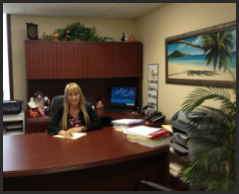WILLS & ESTATES:
Wills
WITHOUT A WILL:
a) Family Fighting – it is sad to find out that once a loved one passes away, suddenly emotions run high and unfortunately family fights can erupt quickly. The claws come out and the next thing you know, families who once got along fine, suddenly are at each others throats. The best way to help prevent such events, is to prepare your will and state what exactly your wishes are.
b) No Access – without a will, the person who will manage your estate has to apply to the court to be appointed the “administrator” of the estate. Then and only then will he or she be able to locate, investigate and search for all your assets, liabilities and income. Getting an administration application can and usually takes about 4 months to complete along with an expensive legal bill, so nothing will be done quickly.
c) Beneficiaries – those who are eligible to inherit will be dictated by the courts. It will not be your decision—the decisions will be made for you. What if you want someone else to inherit? Your wishes will not be known or followed.
WITH A WILL:
For most of us, we spend a lifetime gathering assets and then some of us forget to designate who they should go to in the event of our death. A will can resolve so many problems and hurt feelings and ambiguities that will occur without a will. Problems with beneficiaries can still occur with a will, but if the gifts are specific, it reduces such problems immensely. You will need to make your decisions now as follows:
1. Appoint an Executor – One of the most critical reasons for preparing a will is to appoint someone one to have the authority to look after your estate. This person, called the Executor, will be in charge, literally, from the moment after death, to make decisions immediately. People do not realize that decisions must be made within hours of the loved one’s death. For example, which funeral home? Burial or cremation? Then the executor also has the duty to find, locate, investigate and search for all the assets, liabilities and income of the deceased—being the executor gives him or her the instant power to do so.
2. Designate Beneficiaries – those who are to inherit should be over 18. That doesn’t mean you cannot leave something to a minor. However, the ideal situation is that you leave money to someone under 18 on the condition that they get their inheritance in 3 separate payments: 1/3 when they turn 18, 1/3 when they turn 21 and the remainder at age 25. That way, when they get the first installment and blow it all within a few months or a year, then they still have 2/3 for later. Also what if one of your children dies the same day as you? Would you want your grandchild to get that child’s share? These are the questions you will need to think about.
3. Appoint Alternate Executors and Beneficiaries – what if your executor dies before you or on the same day? You should always appoint an alternate executor to act in case the person you appointed is unable or predeceases you. The same goes for a beneficiary. You should name an alternate. Child then to grandchild is a perfect example. If your child does not have children, then you can say that the deceased’s child share shall go to my surviving children (if you have more than one).
4. Designate Specific Bequeaths – sometimes we have very specific items that we want to go to specific persons. With a will, you can specify who gets your coin collection or your paintings. I had one client who left her ex-husband the oil painting of herself and $5 for darts. Although it was hilarious, she was serious and we put it in the will. The executor will have to follow her instructions.
5. Appoint Guardians – if you have children and they are under 18, your spouse can take care of the children. However, if you do not have a spouse, you will need to appoint a guardian.
Holograph wills – while holograph wills are legal in Alberta, they must be completely in the handwriting of the testator. Some will kits that are partly typed and partly written do not qualify. The best protection is to have a lawyer draw up a will for you and have it properly signed and witnessed.
Estate Planning – is so important and getting the right advice is critical to help avoid family fighting, minimize taxes and hopefully avoid estate litigation.
Wills
- Estate Planning
- Hits: 7979
